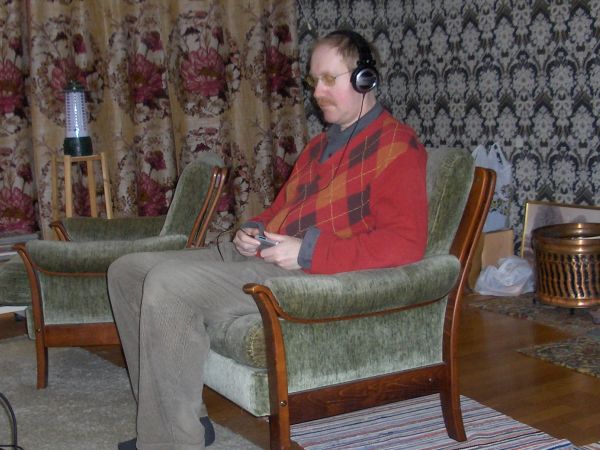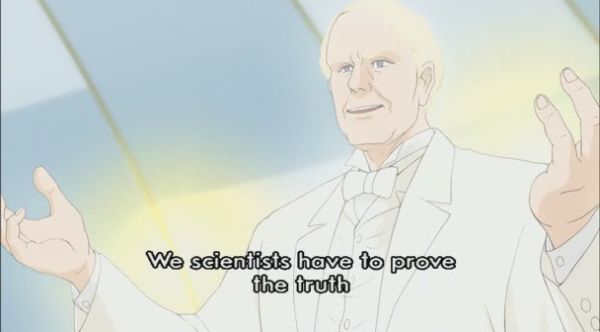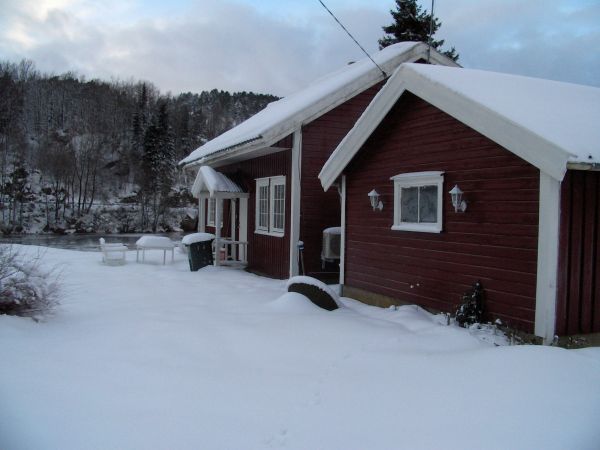I even have a pair of good headphones I bring with me on the commute and wherever I want to listen to brainwave entrainment tracks on the move. It is a pretty good use of such time, don’t you think?
Looking at my tags, it seems I have not written about my brainwave entrainment since last summer. I know I have meant to write about it later, but I may have done so only in my head, or only a draft that I did not upload. Time to fix that. I think some people may benefit from knowing. There is still a good deal of searches for Holosync on my statistics. And reasonably so, for it is a pretty expensive program by the standards of most of the world, especially with the current economy. It is not like everyone lives in Norway where there is no recession and even an underpaid office worker in a part-time job can afford to try out stuff like this and shrug off the bill almost without noticing.
(You know envy will land you in Hell, right? And that’s even before you’re dead. Envy is bad for your spirit, soul and body. Repent, repent!)
Anyway, Holosync. I guess a part of that steep price goes into their enormous marketing budget. Or you may call it “outreach”. If not for them, hundreds of thousands of people would never have heard of brainwave entrainment. That would have been a loss, for it is quite an interesting technology.
Basically, you use sound (or in some other products light pulses) to set up a standing wave in your brain. Unless you put some effort into making other brain waves, this wave will spread from the deeper parts of the brain where it is created, and engulf both hemispheres. This is thought to improve communication between the various parts of the brain, although I am not sure this follows logically. After all, your brain has whole-brain waves each night during dreamless sleep. This happens several times a night, especially early in the night. (Dream sleep makes up an increasing portion of sleep as morning approaches. Brain waves during dream sleep is similar to waking life, only more excited.)
Of course, during sleep you are not conscious, so that may make a difference. In any case, it is definitely a different experience. And as I have said repeatedly, sitting down and shutting up for half an hour or a whole hour each day with a noble intention will surely cause personal growth. This is proven by thousands of years of monks, nuns, sages, gurus etc, whose quiet life actually used to be a backbone of civilization. Whether civilization today has a backbone I will leave as an exercise for the reader.
I’ve stopped using Holosync, though, because I am more impressed with LifeFlow from Project Meditation (warning: sound!). While still a little heavy on the hype, they are more realistic, encouraging a combination of entrainment and meditation, and also not flooding their customers with constant mail (both electronic and paper) promoting largely unrelated new-age and general quackery products like Bill Harris / Centerpointe does. More importantly, I think their product is better (eventually) and I agree with their approach.
LifeFlow starts with entrainment at 10 Hz, a fairly everyday alpha level which most of us experience when we relax. For each month you subscribe, you get a new track that is 1 Hz lower: 9, 8, 7, 6, 5, 4, 3, 2, 1, and finally two bonus tracks with gamma (very high frequencey) for those who dare experiment with that. These frequencies are associated with religious ecstasy but may also trigger a panic attack, so it is probably a good idea to go through a year of familiarizing yourself with brainwave entrainment first. Me, I prefer to get my religious ecstasy from religion, if at all. Anyway, LifeFlow combines the use of binaural beats (which Holosync also uses) with monaural and isochronic tones. It does not use ramping (sliding frequencies) as the brain anyway uses several minutes to entrain to a frequency unless you are deeply familiar with it.
The different frequencies have somewhat different effect on the brain, although not in great detail: They mostly fall into three groups. But all of them induce synchronization of large parts of the brain. Of special interest is the deepest frequencies, which correspond to the waves of delta sleep, or slow wave sleep. Natural delta waves have a frequency ranging from about 0.5 to 2 Hz, or oscillations per second. So this is quite slow indeed.
During deep, dreamless sleep the brain seems to rest more deeply than otherwise, and this is also where growth hormone is released in adult men (the only group of humans where this has been studied in detail as far as I know). In young adults, delta sleep make up a significant part of the first sleep cycle (about 90 minutes), a smaller part of the next, and very little from then on. In the elderly it is quite common to not have slow waves sleep at all most nights. Being able to induce this state in the brain artificially may have substantial health potential. What I can say is that it certainly seems to let me do with less sleep each night and still be less tired than I used to be during the day.
After I got the deepest levels of LifeFlow, I have had no need for Holosync. I have not sent it back for a refund though (they do have a 1 year money back promise if you don’t buy any higher levels). After all, I used it for several months, so I feel I got my money’s worth. I just think LifeFlow is more effective, once you get to the deeper levels. You also have more levels to choose from, for different purposes. That it also happens to be more affordable is just an added bonus. Recommended. (They also have a great forum where meditators with decades of experience will share their wisdom with newcomers. It’s not quite like having your own guru, but probably better than nothing. Plus, you have me! ^_^)
So that’s how it ended, at least so far. I may write more if I find I have left out anything important.






